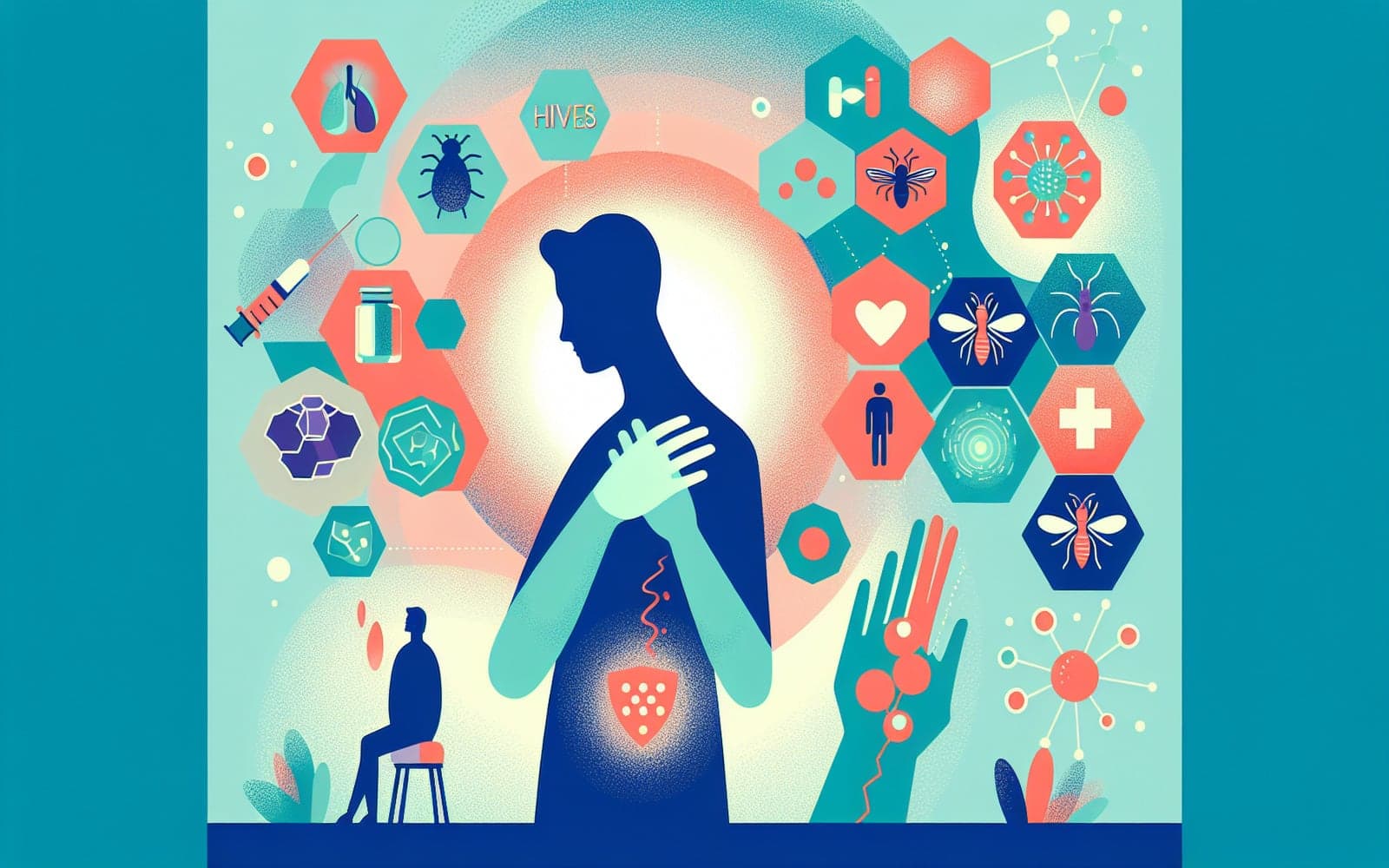What's Triggering Your Hives? Common Culprits Revealed
Published: Jun 25, 2024

Medically reviewed by Jerome Albert Ecker | MD, Assistant Professor of Medicine, Duke University - Durham, NC on June 25th, 2024.
Hives can appear seemingly out of nowhere, leaving you scratching your head (and skin) for answers. While the exact cause isn't always clear, there are several common triggers that could be behind your itchy outbreak. Let's uncover the potential culprits!
Contents
Allergic Reactions: The Usual Suspects
Allergies are a frequent cause of hives, with your body reacting to certain substances as if they were harmful invaders. Common allergens include foods (like nuts, shellfish, eggs, and milk), medications (particularly antibiotics and pain relievers), insect stings or bites, and latex. When exposed to these triggers, your immune system releases histamine, leading to those characteristic itchy welts. Allergic hives typically appear within minutes to a few hours after exposure.
Infections: The Sneaky Triggers
Believe it or not, various infections can cause hives, especially in children. Viral infections like the common cold, hepatitis, or even COVID-19 can trigger an outbreak. Bacterial infections, including strep throat and urinary tract infections, may also be culprits. In these cases, hives are often accompanied by other symptoms like fever or fatigue. The exact mechanism isn't fully understood, but it's thought to be related to the body's immune response to the infection.

Physical Factors: When Your Environment is to Blame
Sometimes, hives are caused by physical stimuli rather than internal factors. This type of hives, called physical urticaria, can be triggered by pressure on the skin, extreme temperatures (both hot and cold), sunlight exposure, or even vibration. For example, tight clothing might cause pressure urticaria, while jumping into a cold pool could trigger cold urticaria. These hives typically appear within minutes of the stimulus and resolve quickly once the trigger is removed.
Frequently Asked Questions
Yes, stress can trigger or worsen hives in some people.
No, hives themselves are not contagious.
Yes, foods like nuts, shellfish, and eggs are common hives triggers.
Yes, various medications, especially antibiotics, can trigger hives.
Key Takeaways
While pinpointing the exact cause of hives can be challenging, understanding common triggers is the first step towards managing and preventing outbreaks.
Struggling to identify your hives trigger? Chat with Doctronic to explore potential causes and find personalized solutions.Related Articles
References
Kaplan AP. Urticaria and angioedema. In: Middleton's Allergy: Principles and practice, 7th, Adkinson NF, Bochner BS, Busse WW, Holgate ST, Lemanske RF, Simons FER (Eds), Mosby, St Louis, MO 2009. Vol 2, p.1063.
Zuberbier T, Asero R, Bindslev-Jensen C, et al. EAACI/GA(2)LEN/EDF/WAO guideline: definition, classification and diagnosis of urticaria. Allergy 2009; 64:1417.
This article has been reviewed for accuracy by one of the licensed medical doctors working for Doctronic. Always discuss health information with your healthcare provider.

